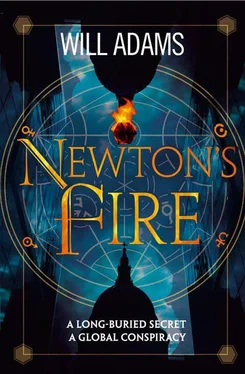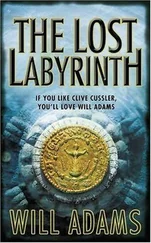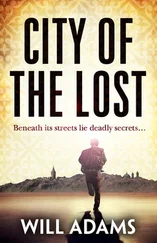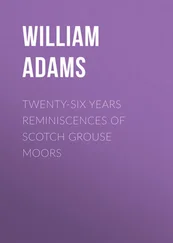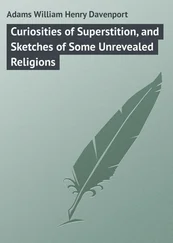Will Adams - Newton’s Fire
Здесь есть возможность читать онлайн «Will Adams - Newton’s Fire» — ознакомительный отрывок электронной книги совершенно бесплатно, а после прочтения отрывка купить полную версию. В некоторых случаях можно слушать аудио, скачать через торрент в формате fb2 и присутствует краткое содержание. Жанр: Триллер, на английском языке. Описание произведения, (предисловие) а так же отзывы посетителей доступны на портале библиотеки ЛибКат.
- Название:Newton’s Fire
- Автор:
- Жанр:
- Год:неизвестен
- ISBN:нет данных
- Рейтинг книги:5 / 5. Голосов: 1
-
Избранное:Добавить в избранное
- Отзывы:
-
Ваша оценка:
- 100
- 1
- 2
- 3
- 4
- 5
Newton’s Fire: краткое содержание, описание и аннотация
Предлагаем к чтению аннотацию, описание, краткое содержание или предисловие (зависит от того, что написал сам автор книги «Newton’s Fire»). Если вы не нашли необходимую информацию о книге — напишите в комментариях, мы постараемся отыскать её.
Newton’s Fire — читать онлайн ознакомительный отрывок
Ниже представлен текст книги, разбитый по страницам. Система сохранения места последней прочитанной страницы, позволяет с удобством читать онлайн бесплатно книгу «Newton’s Fire», без необходимости каждый раз заново искать на чём Вы остановились. Поставьте закладку, и сможете в любой момент перейти на страницу, на которой закончили чтение.
Интервал:
Закладка:
‘Spreading this worm throughout our network?’
‘That’s what we suspect. But, as I say, we don’t know anything yet. Not for sure.’ She shook her head ruefully. ‘If one of our technicians hadn’t been on the ball …’
A moment of stillness, rage building inside. ‘Who did this? Was it the Iranians? Is this payback for Stuxnet?’
‘It’s possible. The technology is light years beyond anything we thought Tehran had, but they’ve been building up their capability fast. My money would be on the Chinese, though, or possibly the Russians. You’d know better than I who’d benefit most from something like this.’
The Chief of the General Staff put a hand to his head. ‘Will they know how much harm they’ve done?’
‘They’ll likely know that they’ve successfully infiltrated their worm into our systems. They probably won’t know how far it’s spread, whether we’ve spotted it, what our countermeasures are like or how long it will take us to sort it out. Not unless there’s some other vulnerability in our system we haven’t yet identified.’
‘And what’s the likelihood of that?’
‘At this time yesterday I’d have told you that there was no possibility whatsoever of there being a worm like this in our system.’
The Chief of the General Staff sat back in his chair. This would have been disastrous news at the best of times; and this was far from that. Three weeks ago, on May 15th, Arabs here and across the broader region had started making trouble, rioting and throwing stones in protest at the anniversary of Israel’s independence. Usually, these Nakba protests lasted a day or two before fizzling out, but the earthquake that had wrecked their nuclear defences had also put fissures in the Dome of the Rock, sparking a massive increase in the scale, intensity and duration of unrest.
Marches in Damascus, Amman and Cairo and along their borders had turned into violent anti-Jewish riots — though quite how the Jews were to blame for the earthquake had never been made clear. Missiles had been lobbed into Jewish towns and villages from the Gaza strip and southern Lebanon. Israel’s own forces had had no choice but to strike back. They’d bombed Hamas and Hezbollah positions in Lebanon, Syria and Gaza, had sent in ground-troops to take prisoners. Alert levels had gone up on all sides, army groups had moved closer to their borders. Firebrand politicians and religious leaders had cursed each other from behind the safety of TV cameras. And everyone had been intensely aware that this was all prelude to the region’s other great anti-Jewish anniversary: the week long festival of hate and rage that commemorated the Six Day War, which had kicked off earlier today.
Until now, however, this had all seemed to him part of the usual theatre: alarming, certainly, yet essentially manageable. But what if there was more to it this time? What if this were part of some larger plan?
He stared down at his desk. For some forty years, Israel’s strategic defence had ultimately relied on nuclear deterrence. Their Arab neighbours, for all their bluster, had never truly contemplated Israel’s destruction, lest Israel take the whole region down with her. Now, at a stroke, they’d effectively been reduced to conventional forces. And while Israel was a theoretical match for its neighbours’ combined armies, hot wars chewed up armour and aircraft at a terrifying rate, depleting stocks of petrol and munitions rapidly. The Egyptians, Syrians, Lebanese and Jordanians could all expect swift if surreptitious resupply from Iran, China, Pakistan and Russia. Israel, by contrast, would be almost entirely dependent on the US. Yet tonight their Prime Minister was making a major foreign policy speech seeking stronger ties with the European Union at the expense of Washington, not least because they didn’t want to be too reliant on a US administration led — since the botched assassination attempt — by a thin-skinned crazy woman who believed in the imminence of the Rapture.
He looked up at Judit. ‘You’re to work on nothing else,’ he told her. ‘You’re to requisition any and all resources you need, but you’ll find out the extent of this as soon as possible. And then you’ll fix it. I’ll want briefings twice a day until you do; and immediate updates if anything new emerges.’
‘Yes, General,’ she said. ‘But, with respect, this happened under my command. This failure is my responsibility. I therefore wish to tender my-’
‘Not yet,’ cut in the Chief of the General Staff. ‘Sort this mess out first, then make the offer. I might even accept.’
‘Yes, General.’
‘Good. Now get to work.’ He watched her out the door, wondering who to take this to. By rights, he reported to the Defence Minister; but the Defence Minister was in South Africa this week, discussing nuclear security, of all things, and there was no time to waste. He picked up his phone, dialled an internal number. ‘I need to see the Prime Minister,’ he said.
‘She’s leaving for her speech in a minute,’ said her assistant. ‘I could fit you in afterwards or-’
‘Her speech will have to wait,’ said the Chief of the General Staff. ‘I’m coming over now.’
II
There was something about having the roof down. Rachel’s spirits lifted from the rush of open air and sunlight on her face, from the noise of the road and passing traffic. Her life had become drab with duty recently. That was the truth of it. To be whirled away from it, even under these extraordinary circumstances, felt bizarrely like release. And it was a pleasure, too, simply being with people that she liked. And she did like Luke and Pelham, she realized, rather to her surprise. She liked them a lot.
They passed Aylesbury, traded A roads for country lanes. Pelham slowed to a more leisurely pace, allowing her to admire the landscape, quaint villages separated by woods, pastures and fields of grain. It grew cooler. The late afternoon sun began a little alchemy of its own, turning a line of leaden clouds low on the horizon into streaks of glorious gold. Rachel leaned forwards between the front seats, as much for a windbreak as anything, and squinted against the windscreen’s glare.
‘Don’t take this wrong, guys,’ she said, ‘but why on earth would a man like Newton fall for nonsense like the philosopher’s stone? He didn’t really believe transmutation was possible, did he?’
‘Just because a theory turns out to be wrong, doesn’t mean it was stupid,’ said Luke. ‘Alchemy was far more sophisticated than people think.’
‘And it was immensely productive too,’ added Pelham. ‘The scientific method is hypothesis, experimentation, observation, inference, peer review, replication. All devised or developed by the alchemists.’
Rachel gave him a doubtful look. ‘Yes, but turning lead into gold …’
‘People didn’t understand the nature of matter,’ said Luke. ‘They were brought up on earth, fire, air and water, with no real concept of atoms or molecules. The alchemists were doing their best to come up with a better model. And forget the get-rich schemes; those were for the charlatans. Gold wasn’t even really seen as a precious metal by serious practitioners like Dee, Newton and Boyle. It was their symbol for light, for the sun, for the divine nature itself. Making it, for them, was like winning it for an Olympic athlete: not the accomplishment itself, merely proof of it.’
Rachel smiled at the analogy. ‘So what were they after?’
‘A unified theory of everything,’ answered Luke. ‘How the earth and heavens worked, the nature of substance, the secret of life itself.’ He cocked an eyebrow at her. ‘And don’t make the mistake of thinking the philosopher’s stone was some kind of magical gem. It was much more subtle than that. Alchemists also called it sacred fire or secret fire or even the animating spirit, all of which are far better ways of thinking about it. Newton originally thought it was magnetism or maybe even light. Ultimately he came to believe that it was electricity. And that isn’t remotely stupid, if you think about it. Frankenstein’s monster. The spark of life. Cardiac paddles.’
Читать дальшеИнтервал:
Закладка:
Похожие книги на «Newton’s Fire»
Представляем Вашему вниманию похожие книги на «Newton’s Fire» списком для выбора. Мы отобрали схожую по названию и смыслу литературу в надежде предоставить читателям больше вариантов отыскать новые, интересные, ещё непрочитанные произведения.
Обсуждение, отзывы о книге «Newton’s Fire» и просто собственные мнения читателей. Оставьте ваши комментарии, напишите, что Вы думаете о произведении, его смысле или главных героях. Укажите что конкретно понравилось, а что нет, и почему Вы так считаете.
